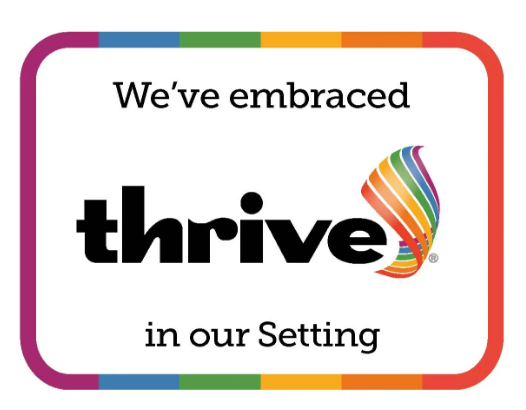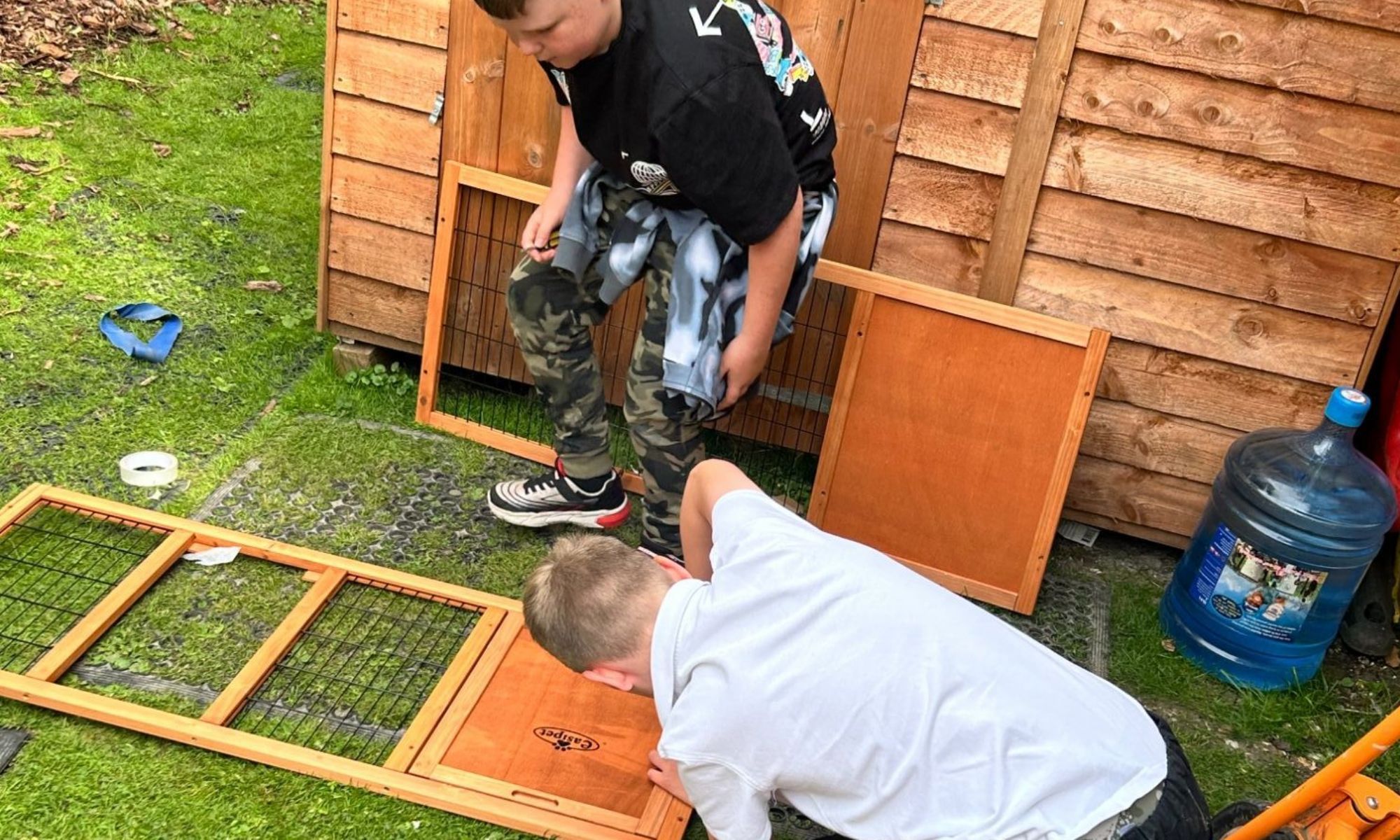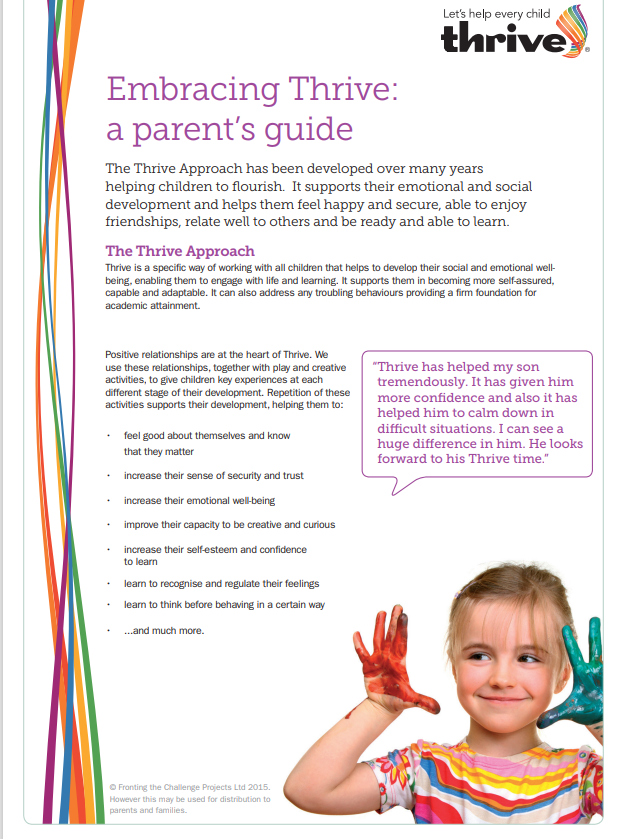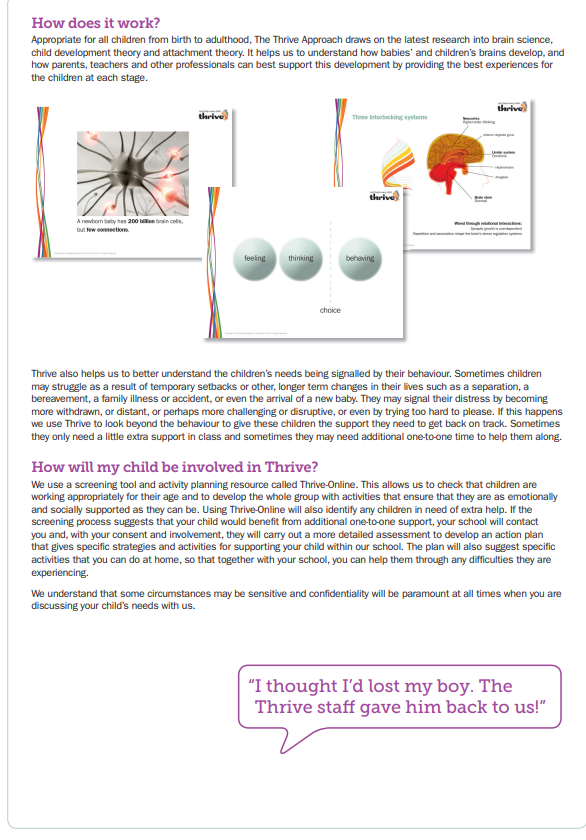Thrive Appraoch
Thrive



- Uses relational strategies to meet the needs of children and young people when they are experiencing change, loss or significant life events.
- Uses targeted reparative work to fill the gaps where children’s needs have not been met at the right time in their earlier development.
- Supports right time development.
Purpose
It is our purpose at Northcroft School to provide a secure caring atmosphere of trust and stability, giving all children and young people the necessary support and guidance for their social and emotional development. We hope to achieve this through the following:
the following:
- A fair and consistent approach towards requests for support
- All school staff to be aware of the theory, underlying principles and assessment procedures of Thrive
- All staff to either use Thrive techniques and strategies on a daily basis when encountering children and young people or be able to refer then to appropriate Thrive Practitioners

- Designated time slots throughout the week for group and/or 1:1 work with the Thrive practitioners.
- A developing bank of resources for activities agreed in the action plan
- Access to lunchtime DOING clubs for children and young people who find the unstructured time difficult to deal with
- Identify vulnerable pupils to Thrive trained staff or pupils raised as a concern on a whole class screening
- Online Assessment and Action Planning Tool used based on observations and/or class teachers views
- Action Plan created (if possible with parents and key workers) based on assessment outcomes
- Sessions carried out on a weekly basis
- Review Action Plans (approx. every 6 – 8 weeks / half term)
Thrive in Practice
Level 1: Delivered in the classroom through strategies that will benefit all pupils in the class but in particular the pupil who requires Thrive. These will be built into daily routines, tutor time and when supporting the pupil with learning. Strategies for the teacher will be provided by the Thrive licensed practitioner.

Level 2: Small group interventions led or overseen by one of the Thrive Practitioners. Groups will be made up of pupils who have the same ‘interruption’.
Level 3: Mix of 1:1 sessions and group sessions. Pupils receiving 1:1 sessions will be given strategies to use outside of the Thrive sessions by the practitioners.
Level 4: Entirely focussed on offering a pupil 1:1 sessions with the aim of working towards Level 3 when deemed appropriate.
The progress of pupils at levels 2 and 3 and 4 is reviewed on a 6-8 week basis and action plans will be adjusted accordingly.
More Information
For more information about the Thrive approach, see the website: www.thriveapproach.co.uk


